Welcome to our free classical music site

Do you write about classical music? Are you a blogger? Want to team up with Classical Connect? Send us a message, let's talk!

Do you write about classical music? Are you a blogger? Want to team up with Classical Connect? Send us a message, let's talk!
This Week in Classical Music: May 20, 2024. Wagner and Lighter Things. Richard Wagner’s 211th anniversary is on May 22nd: he was born in Leipzig in 1813. Wagner’s music is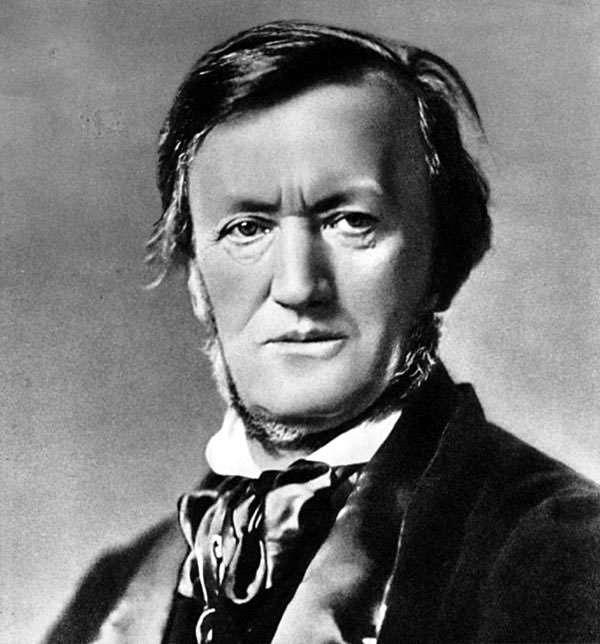 still so fresh (and often so controversial) that it feels strange that he was only two years younger than his stepfather, Franz Liszt, and three years younger than Frédéric Chopin and Robert Schumann, whose places in the pantheon of European music have been established a long time ago. Hitler’s love for his music didn’t help Wagner’s reputation, and neither did the composer’s abhorrent antisemitism. But if we put the non-musical considerations aside (and we recognize that it’s easier said than done), what we have is a musical genius, well ahead of his contemporaries, a composer whose music influenced generations of musicians all over the world, sometimes in very unexpected ways (think, for example, of the orchestral works of Claude Debussy, who had a love-hate relationship with Wagner).
still so fresh (and often so controversial) that it feels strange that he was only two years younger than his stepfather, Franz Liszt, and three years younger than Frédéric Chopin and Robert Schumann, whose places in the pantheon of European music have been established a long time ago. Hitler’s love for his music didn’t help Wagner’s reputation, and neither did the composer’s abhorrent antisemitism. But if we put the non-musical considerations aside (and we recognize that it’s easier said than done), what we have is a musical genius, well ahead of his contemporaries, a composer whose music influenced generations of musicians all over the world, sometimes in very unexpected ways (think, for example, of the orchestral works of Claude Debussy, who had a love-hate relationship with Wagner).
Liebestod, or Love Death in German, is the final music of Wagner’s opera Tristan und Isolde, and one of his best-known pieces. In it, Isolde sings over Tristan’s dead body. It’s a difficult piece, especially considering it comes at the end of an almost five-hour opera. In our library we have three recordings of this scene, with Kirsten Flagstad, Birgit Nilsson and Waltraud Meier; all three were leading Wagnerian sopranos of their generation. We like all three, but Flagstad’s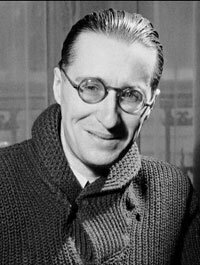 probably the most, even though the recording quality is not great. Here it is, from 1936, with Fritz Reiner conducting the orchestra of the Royal Opera House (Covent Garden).
probably the most, even though the recording quality is not great. Here it is, from 1936, with Fritz Reiner conducting the orchestra of the Royal Opera House (Covent Garden).
On a much lighter note is the anniversary of Jean Françaix, whose music was sunny, witty and sophisticated. Françaix was born on May 23rd of 1912 in Le Mans. His musical gifts were obvious from an early age. He studied in Le Mans and then at the Paris Conservatory. He also took lessons with Nadia Boulanger, who considered him one of her most talented pupils, a praise of the highest order considering the many talented musicians who studied with her. Here’s Jean Françaix’s Concertino for Piano and Orchestra. The soloist is Claude Françaix, the composer’s daughter. The London Symphony Orchestra is conducted by Antal Dorati.Permalink
This Week in Classical Music: May 13, 2023. Monteverdi and more. We’ll be brief this week, not that we’ve been too loquacious lately. Of the composers, the great Claudio Monteverdi, widely considered the most important composer of the end of the 16th – early 17th century, was born this week in 1567. He was baptized on May 15th in a church in Cremona, so most likely he was born a day earlier, on May 14th. In 2017, on Monteverdi’s 450th anniversary, we posted an entry about him. You can read it here.
widely considered the most important composer of the end of the 16th – early 17th century, was born this week in 1567. He was baptized on May 15th in a church in Cremona, so most likely he was born a day earlier, on May 14th. In 2017, on Monteverdi’s 450th anniversary, we posted an entry about him. You can read it here.
Maria Theresia Paradis, born May 15th of 1759 in Vienna, was a blind piano virtuoso. As a composer, she is remembered for one piece only, her Sicilienne, even though she authored several operas and cantatas. It was performed on the violin and cello, and served as the favorite encore piece to many, from Nathan Milstein to Jacqueline du Pré (here). The problem is that most likely, the Sicilienne wasn’t written by Paradis at all but is a hoax perpetrated by Samuel Dushkin, a Polish-American violinist. Dushkin claimed that he found it among Paradis’ piano pieces and arranged it for the violin, but such a manuscript was never found. Sill, Paradis helped to establish the first school for the blind (in 1785, in Paris) and should be remembered if not as a composer, then as a pioneering blind musician.
Also, Otto Klemperer, one of the most important German conductors, was born on May 24th of 1885 in Breslau, then the capital of German Silesia, now Wrocław, Poland. He was one of many Jewish musicians who escaped Germany after the Nazis took power in 1933. He left for Switzerland but ended up in the United States where he led several major orchestras, including the LA Philharmonic and the Pittsburgh Symphony. After WWII, Klemperer reestablished his career in Europe, especially in London. He died in Zurich in 1973.Permalink
This Week in Classical Music: May 6, 2024. Brahms, Tchaikovsky, and more. Tomorrow is the birthday of two great composers, Johannes Brahms and Pyotr (Peter) Tchaikovsky. Brahms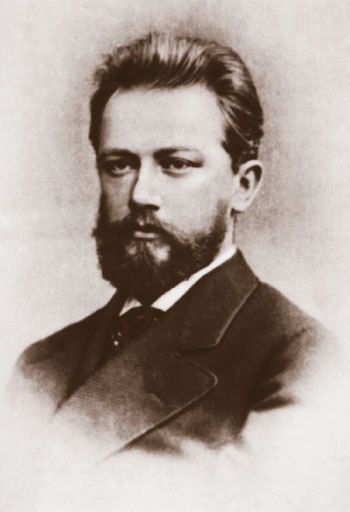 was born on May 7th of 1833 in Heide, a small town in northern Germany (then, the duchy of Schleswig-Holstein); Tchaikovsky – seven years later, in a small town of Votkinsk, not far from the Ural Mountains. Tchaikovsky is considered (at least, by the Russians) the greatest Russian composer, while Brahms is one of the “Three Bs” (with Bach and Beethoven). They lived through the same period (Brahms died in 1897, four years after Tchaikovsky), both were great symphonists, they wrote violin concertos that are considered among the best ever written, and their piano concertos are also hugely
was born on May 7th of 1833 in Heide, a small town in northern Germany (then, the duchy of Schleswig-Holstein); Tchaikovsky – seven years later, in a small town of Votkinsk, not far from the Ural Mountains. Tchaikovsky is considered (at least, by the Russians) the greatest Russian composer, while Brahms is one of the “Three Bs” (with Bach and Beethoven). They lived through the same period (Brahms died in 1897, four years after Tchaikovsky), both were great symphonists, they wrote violin concertos that are considered among the best ever written, and their piano concertos are also hugely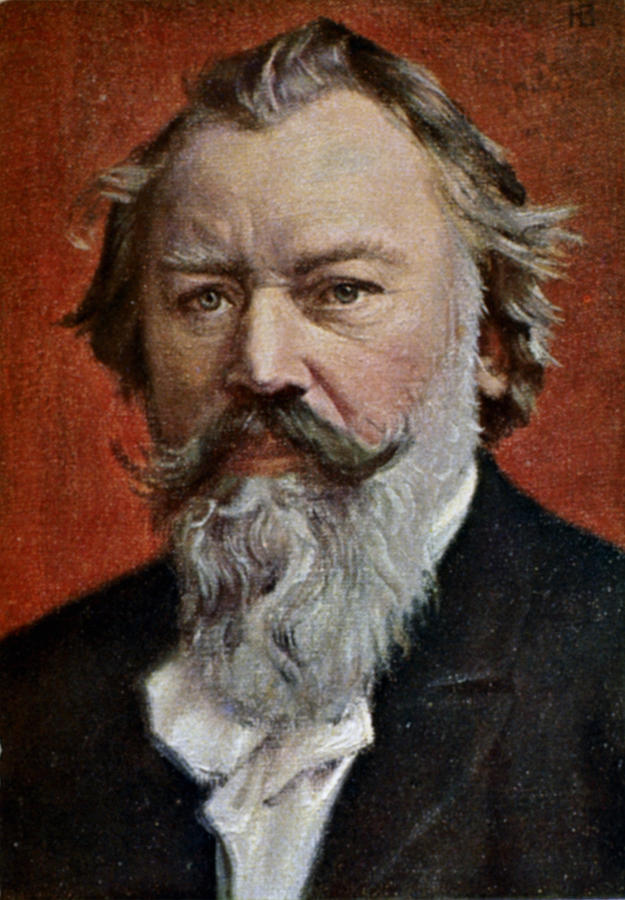 popular. Nonetheless, their music is as different as it can be, and so were their lives: Brahms’s was steady, not very eventful (at least the way it manifested itself to outsiders), Tchaikovsky’s – full of tragedies, many of which related to his closeted homosexuality. Given the format of our entries, we can do justice neither to their biographies, nor their music: we've dedicated four entries to Arnold Schoenberg just to go into some detail, and here we have two very prolific composers. So instead, we’ll play their violin concertos, the ones we mentioned above, both featuring female soloists. Here’s Rachel Barton Pine playing Brahms (Chicago Symphony Orchestra is conducted by Carlos Kalmar); and here is the Tchaikovsky; Julia Fischer is the soloist, Yakov Kreizberg leads the Russian National Orchestra).
popular. Nonetheless, their music is as different as it can be, and so were their lives: Brahms’s was steady, not very eventful (at least the way it manifested itself to outsiders), Tchaikovsky’s – full of tragedies, many of which related to his closeted homosexuality. Given the format of our entries, we can do justice neither to their biographies, nor their music: we've dedicated four entries to Arnold Schoenberg just to go into some detail, and here we have two very prolific composers. So instead, we’ll play their violin concertos, the ones we mentioned above, both featuring female soloists. Here’s Rachel Barton Pine playing Brahms (Chicago Symphony Orchestra is conducted by Carlos Kalmar); and here is the Tchaikovsky; Julia Fischer is the soloist, Yakov Kreizberg leads the Russian National Orchestra).
Four composers were born on May 12th: Giovanni Battista Viotti, the famous Italian violinist and composer, in 1755; the Frenchman Jules Massenet, known for his operas Manon and Werther, in 1842; another, musically more adventuresome Frenchman, Gabriel Faure, three years later; and Anatoly Lyadov, the Russian composer known as much for his friendship with Tchaikovsky as for his small scale piano and orchestral pieces. Here’s Lyadov’s Kikimora (a nasty house spirit in Russian mythology); the Russian National Orchestra is conducted by Mikhail Pletnev.Permalink
This Week in Classical Music: April 29, 2024. Hans Pfitzner: antisemitism then and today. We are remembering the German composer Hans Pfitzner, who was born on May 5th of 1869, not because of his talent – he was a conservative composer with certain gifts, but not more than that – but because of the antisemitism on our campuses. Pfitzner was a nationalist who was taken by the Nazi ideas; he met Hitler as early as 1923 (Hitler visited him in a hospital where Pfitzer was recovering after surgery). Pfitzner was very impressed, but not Hitler, he even decided that Pfitzner was half-Jewish. It took poor Pfitzner many years to get rid of this reputational blemish. Pfitzner lived in an atmosphere of unmitigated antisemitism, and while himself a vocal antisemite who thought that Jews, especially foreign Jews, presented a danger to German spiritual life and culture, he was not a “total” antisemite like the Nazi leadership, he was an antisemite “with exceptions.” For example, he refused to write the music to Shakespeare’s A Midsummer Night’s Dream when the Nazis decided to replace the Jewish Mendelssohn’s classical score – unlike Carl Orff, who was happy to oblige. Pfitzner tried to help some Jewish musicians, in particular his good friend the music critic Paul Cossmann: Pfitzner was instrumental in saving Cossmann’s life in 1933 when he was arrested by the Gestapo but was helpless in 1942 when Cossmann was sent to the Theresienstadt concentration camp, where he perished several months later. Of course, Pfitzner was not an exception: during the Nazi period, German society as a whole was antisemitic. It was this societal antisemitism and, consequently, utter indifference to the fate of the Jews that allowed the Nazis to proceed with the “Final solution.”
but because of the antisemitism on our campuses. Pfitzner was a nationalist who was taken by the Nazi ideas; he met Hitler as early as 1923 (Hitler visited him in a hospital where Pfitzer was recovering after surgery). Pfitzner was very impressed, but not Hitler, he even decided that Pfitzner was half-Jewish. It took poor Pfitzner many years to get rid of this reputational blemish. Pfitzner lived in an atmosphere of unmitigated antisemitism, and while himself a vocal antisemite who thought that Jews, especially foreign Jews, presented a danger to German spiritual life and culture, he was not a “total” antisemite like the Nazi leadership, he was an antisemite “with exceptions.” For example, he refused to write the music to Shakespeare’s A Midsummer Night’s Dream when the Nazis decided to replace the Jewish Mendelssohn’s classical score – unlike Carl Orff, who was happy to oblige. Pfitzner tried to help some Jewish musicians, in particular his good friend the music critic Paul Cossmann: Pfitzner was instrumental in saving Cossmann’s life in 1933 when he was arrested by the Gestapo but was helpless in 1942 when Cossmann was sent to the Theresienstadt concentration camp, where he perished several months later. Of course, Pfitzner was not an exception: during the Nazi period, German society as a whole was antisemitic. It was this societal antisemitism and, consequently, utter indifference to the fate of the Jews that allowed the Nazis to proceed with the “Final solution.”
After WWII and the Holocaust, antisemitism became an unacceptable trait, in all Western countries. So who could imagine that in 2024 the campuses of our elite universities would become centers of organized antisemitism? That Hamas supporters would become moral leaders of our most privileged youth, that we would hear the chants of “October 7th Every Day!”? What is worse, instead of acting responsibly and resisting antisemitism, university administrators equivocate, and so do many in our media. This is disheartening, and we don’t see the light at the end of this especially dark tunnel.Permalink
.jpg) composers of the first half of the 20th century, was born this week. The English-language wiki gives his birth date as April 27th of 1891, the Russian one – as April 23rd, and so does Grove Music. It’s even more confusing because at the end of the 19th century, Russia was still using the “old style” Julian calendar, according to which Prokofiev was born on April 11th (or April 15th). Even the English spelling of his first name differs in different sources: with an “i” at the end in Wiki, but a “y” in Grove and Britannica. None of which matters much; what is important is his undeniable talent as a composer and pianist. Prokofiev left Russia after the Revolution of 1917 but then returned, unexplainably in retrospect, to the Soviet Union in 1936. He wasn’t the only one: dozens of Russian emigres, writers, artists, composers, even the members of the White Guard, returned to their land of birth, driven by nostalgia and Soviet propaganda, many of them to be arrested and killed. Prokofiev was spared, even if for some years his position was tenuous. We’ve written about Prokofiev many times, you can read more, for example, here and here.
composers of the first half of the 20th century, was born this week. The English-language wiki gives his birth date as April 27th of 1891, the Russian one – as April 23rd, and so does Grove Music. It’s even more confusing because at the end of the 19th century, Russia was still using the “old style” Julian calendar, according to which Prokofiev was born on April 11th (or April 15th). Even the English spelling of his first name differs in different sources: with an “i” at the end in Wiki, but a “y” in Grove and Britannica. None of which matters much; what is important is his undeniable talent as a composer and pianist. Prokofiev left Russia after the Revolution of 1917 but then returned, unexplainably in retrospect, to the Soviet Union in 1936. He wasn’t the only one: dozens of Russian emigres, writers, artists, composers, even the members of the White Guard, returned to their land of birth, driven by nostalgia and Soviet propaganda, many of them to be arrested and killed. Prokofiev was spared, even if for some years his position was tenuous. We’ve written about Prokofiev many times, you can read more, for example, here and here.
This Week in Classical Music: April 22, 2024. Prokofiev, Menuhin and Pamphili. Classical Connect is still in turmoil, so we’ll be brief. Sergey Prokofiev, one of the most important
Yehudi Menuhin, one of the greatest violinists of the 20th century, was born in New York on this day in 1916. And we want to remember Cardinal Benedetto Pamphili, born on April 25th of 1653 in Rome. He was an important patron of arts, especially favoring composers (Handel was one of them), and a fine librettist. You can read about him here.Permalink
This Week in Classical Music: April 15, 2024. Marriner, Maderna. Sir Neville Marriner, a great English conductor, was born one hundred years ago today, on April 25th of 1924 in Lincoln,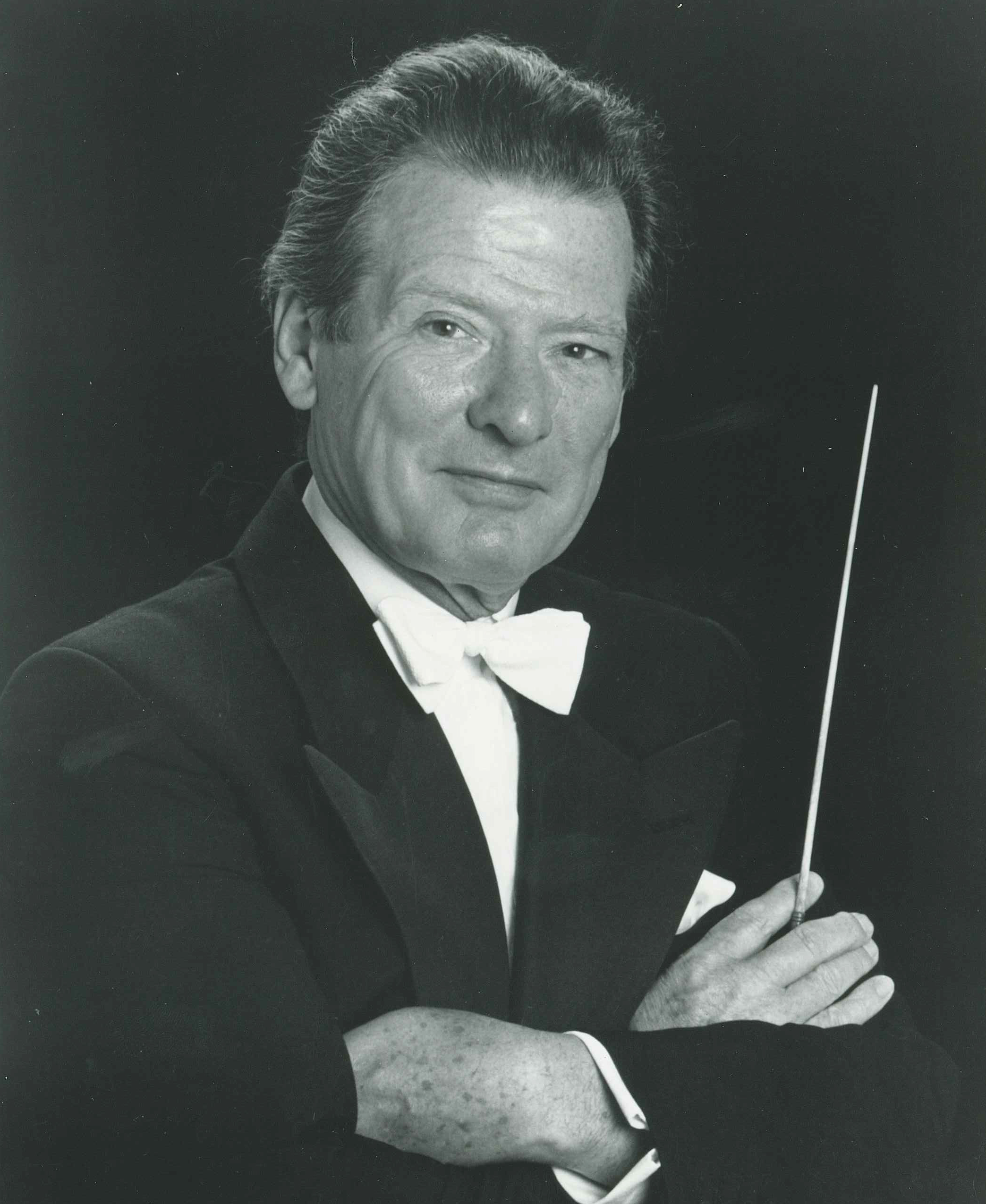 UK. He started as a violinist, played in different orchestras and chamber ensembles, and in 1958 founded the Academy of St Martin in the Fields, the chamber orchestra that became world famous. Among Marriner’s friends and founding members were Iona Brown, who led the orchestra for six years from 1974 to 1980, and Christopher Hogwood, who later founded the Academy of Ancient Music. Marriner and St Marin in the Fields made more recordings than any other ensemble-conductor pair. Their repertoire was very broad, from the mainstay of the baroque and classical music of the 18th century to Mahler, Janáček, Stravinsky, Prokofiev and other composers of the 20th. In the words of Grove Music, Marriner’s performances were “distinguished by clarity, buoyant vitality, crisp ensemble, and technical polish.” Altogether, Marriner made 600 recordings, more than any other conductor except for Karajan. In 1969 Marriner co-founded the Los Angeles Chamber Orchestra, he served as the music director of the ensemble till 1978. Marriner was active till the very end of his life; he died in London on October 2nd of 2016, at 92.
UK. He started as a violinist, played in different orchestras and chamber ensembles, and in 1958 founded the Academy of St Martin in the Fields, the chamber orchestra that became world famous. Among Marriner’s friends and founding members were Iona Brown, who led the orchestra for six years from 1974 to 1980, and Christopher Hogwood, who later founded the Academy of Ancient Music. Marriner and St Marin in the Fields made more recordings than any other ensemble-conductor pair. Their repertoire was very broad, from the mainstay of the baroque and classical music of the 18th century to Mahler, Janáček, Stravinsky, Prokofiev and other composers of the 20th. In the words of Grove Music, Marriner’s performances were “distinguished by clarity, buoyant vitality, crisp ensemble, and technical polish.” Altogether, Marriner made 600 recordings, more than any other conductor except for Karajan. In 1969 Marriner co-founded the Los Angeles Chamber Orchestra, he served as the music director of the ensemble till 1978. Marriner was active till the very end of his life; he died in London on October 2nd of 2016, at 92.
Bruno Maderna, one of the most interesting and influential composers of the 20th century, was born in Venice on April 21st of 1920. Here’s our entry from some years ago.Permalink